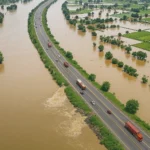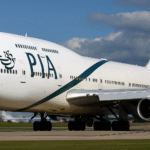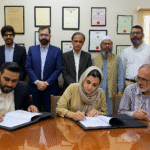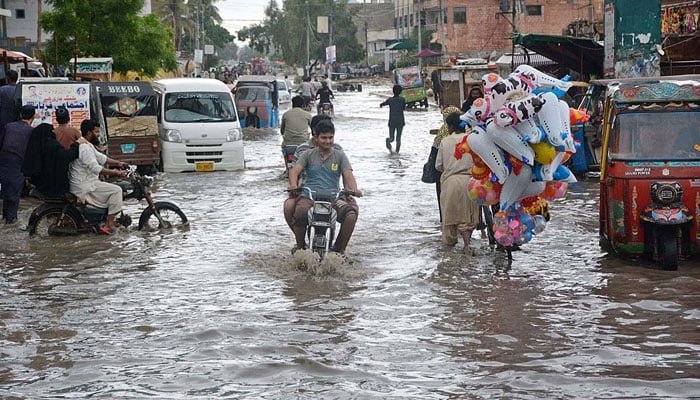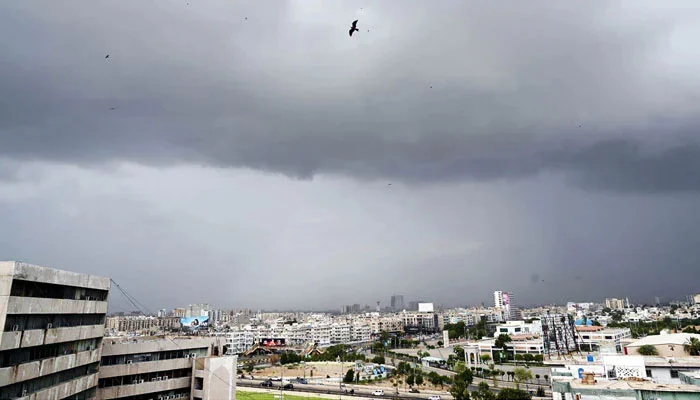Coffee on the Rise in Pakistan: A Missed Opportunity or the Next Big Industry?
Over the past decade, coffee has been steadily gaining popularity in Pakistan, especially among the youth and urban middle class. What was once considered an elite or foreign beverage has now become a daily ritual for many. From coffee chains opening in major cities to homegrown cafes popping up in smaller towns, Pakistan is experiencing a noticeable shift in beverage culture. More and more people, particularly young professionals and students, are choosing coffee over traditional drinks like tea, lassi, or soft drinks.Coffee Culture
This growing coffee culture reflects a broader global trend. Across the world, coffee consumption is booming, and Pakistan is no exception. For the younger generation, coffee is more than just a drink—it’s a lifestyle. It represents modernity, global connection, and often, personal identity. Holding a cup of coffee, especially from a recognizable brand, is seen by many as a symbol of sophistication and belonging to the global urban culture. Social media, international travel, and global food trends have played a significant role in shaping these new preferences. Culture in Pakistan
Coffee vs. Tea: A Cultural Contrast
While coffee is on the rise, it still lags far behind tea in terms of overall consumption and cultural integration. Tea, or chai, is deeply embedded in Pakistani life. From rural villages to bustling cities, tea is a staple in nearly every home, office, and roadside stall. It is a symbol of hospitality, comfort, and everyday routine. The origins of Pakistan’s tea culture date back to colonial times, when the British popularized tea across the Indian subcontinent. Since then, tea has become an inseparable part of Pakistani identity. Culture in Pakistan Culture in PakistanCoffee Culture
This deep-rooted love for tea is not just cultural—it’s also institutional. The government has long supported the tea industry through various initiatives. These include tax incentives, import support, and infrastructure development for local blending and packaging. As a result, Pakistan has developed a relatively robust system for importing tea leaves and processing them locally, creating jobs and reducing dependency on fully imported tea products.Coffee Culture
In contrast, coffee has not received the same level of attention or policy support. Despite growing demand, there is little to no infrastructure for coffee production, processing, or even serious import facilitation. Currently, Pakistan does not grow coffee on a commercial scale, and there are no major processing or manufacturing plants in the country. Most coffee consumed in Pakistan is imported in finished or semi-finished form—either as instant coffee, ground beans, or capsules. This means higher costs for consumers and limited economic benefits for the local industry.Coffee Culture
See More:
https://freedompakistan.com.pk/
The Missing Infrastructure
One of the biggest challenges facing Pakistan’s coffee industry is the complete absence of a domestic supply chain. There are no commercial coffee farms, no processing or roasting plants of significant scale, and minimal investment in research and development. This is in stark contrast to neighboring and regional countries such as India, Vietnam, and Ethiopia, which have developed strong coffee industries that contribute significantly to their economies. Culture in PakistanCoffee Culture
In the absence of local infrastructure, most Pakistani coffee businesses rely entirely on imported products. This limits scalability and leaves them vulnerable to global price fluctuations, currency depreciation, and supply chain disruptions. Local cafes and retailers often face high import duties, limited availability of quality beans, and inconsistent government policies regarding food and beverage imports. Culture in PakistanCoffee Culture
Government Apathy and Missed Opportunities Coffee Culture
Despite the growing demand for coffee and the clear market potential, the government has yet to take meaningful steps toward supporting the coffee industry. Unlike tea, which receives favorable tax treatment and regulatory support, coffee remains overlooked. This reflects a broader policy gap, where emerging consumer trends are not being matched with proactive economic planning.
There is also a lack of awareness among policymakers about the economic potential of coffee. A thriving coffee industry could generate employment, boost small businesses, reduce import dependency, and even open up export possibilities in the long run. Coffee cultivation, processing, retail, and export can together form a value chain that benefits farmers, entrepreneurs, manufacturers, and service providers. Culture in Pakistan Coffee Culture
Countries like Colombia, Brazil, and Vietnam have built entire economies around coffee, while even non-traditional producers like China and Rwanda are investing heavily in domestic coffee cultivation. Pakistan, with its growing youth population and rising middle class, has all the ingredients for a coffee revolution—except the government’s support.Coffee Culture Coffee Culture
A Roadmap for Growth
To develop a sustainable coffee industry in Pakistan, several steps are needed:
-
Agricultural Research and Pilot Projects: The government, in collaboration with agricultural universities and private investors, should launch pilot projects to explore coffee cultivation in suitable regions. Soil testing, climate analysis, and small-scale trials can help determine viability. Coffee Culture
-
Investment in Processing Infrastructure: Encourage private investment in coffee roasting and processing plants through tax incentives, subsidies, and public-private partnerships. Developing local processing will help reduce reliance on imports and improve product freshness.Coffee Culture
-
Policy Reform and Import Facilitation: Streamline import policies for coffee beans and equipment to make it easier for businesses to operate. Reduce import duties and eliminate red tape that hampers the growth of small and medium enterprises (SMEs) in the coffee sector.Coffee Culture
-
Training and Skill Development: Introduce barista training programs, coffee entrepreneurship courses, and hospitality certifications in vocational institutes. This will create a skilled workforce ready to support the growing industry.
-
Public Awareness and Promotion: Launch national campaigns to promote local coffee culture and its potential economic benefits. Highlight success stories of local cafes, entrepreneurs, and small-scale roasters to inspire broader participation.
-
Export Strategy: In the long run, if local cultivation becomes viable, Pakistan could target export markets in the Middle East, Central Asia, and East Africa. Branding Pakistani coffee as a premium product can open new revenue streams.
Conclusion: Time to Wake Up and Smell the Opportunity
Pakistan stands at a crossroads. On one hand, there is a clear and rising demand for coffee driven by demographic trends, changing lifestyles, and global cultural influence. On the other hand, the country lacks the infrastructure, policy support, and strategic direction to turn this demand into a thriving domestic industry.
This gap presents a major opportunity—but only if policymakers, investors, and entrepreneurs are willing to act. By learning from the success stories of other nations and aligning economic policies with emerging consumer habits, Pakistan can build a coffee industry that not only satisfies local tastes but also creates jobs, stimulates the economy, and contributes to national growth. Culture in Pakistan
The aroma of opportunity is already in the air. It’s time Pakistan takes its first real sip of the coffee revolution.



